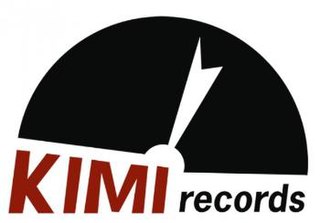History
Gogoyoko was founded in Reykjavík, Iceland, in December 2007 by musicians Haukur Magnússon and Pétur Úlfur Einarsson. [9] Reynir Harðarson, one of the founders of CCP Games and the original art director of the massively multiplayer online game Eve Online, was also a founding member of the company and one of its owners. Their headquarters were located in the downtown Reykjavík area. [4]
On November 15, 2008, gogoyoko launched its Alpha test mode. [10] On May 1, 2009, it launched its beta version. [9] The Beta version became open for everybody in Iceland, where the company was based. On October 1, 2009, the site launched in Scandinavia. For those located outside of Iceland and Scandinavia an invitation to the page was needed. [5]
In 2013, the financial problems the company had been suffering from culminated in the entire staff being laid off and changes in management. [11] Eventually, the service shut down. Its website displayed a message stating that it was "temporarily closed" until as late as May 2015, [2] and was unreachable in December 2016.

Napster was a peer-to-peer file sharing application. It originally launched on June 1, 1999, with an emphasis on digital audio file distribution. Audio songs shared on the service were typically encoded in the MP3 format. It was founded by Shawn Fanning, Sean Parker, and Hugo Sáez Contreras. As the software became popular, the company ran into legal difficulties over copyright infringement. It ceased operations in 2001 after losing a wave of lawsuits and filed for bankruptcy in June 2002.

Digital media is any communication media that operate in conjunction with various encoded machine-readable data formats. Digital media can be created, viewed, distributed, modified, listened to, and preserved on a digital electronics device. Digital defines as any data represented by a series of digits, and media refers to methods of broadcasting or communicating this information. Together, digital media refers to mediums of digitized information broadcast through a screen and/or a speaker. This also includes text, audio, video, and graphics that are transmitted over the internet for viewing or listening to on the internet.

The Orchard is an American music and entertainment company, specializing in media distribution, marketing, and sales. It is a subsidiary of Sony Music, based in New York City. In 2019, the company sold off its film and television division, which was renamed 1091 Media.

A digital music store is a business that sells digital audio files of music recordings over the Internet. Customers gain ownership of a license to use the files, in contrast to a music streaming service, where they listen to recordings without gaining ownership. Customers pay either for each recording or on a subscription basis. Online music stores generally also offer partial streaming previews of songs, with some songs even available for full length listening. They typically show a picture of the album art or of the performer or band for each song. Some online music stores also sell recorded speech files, such as podcasts, and video files of movies.
Last.fm is a music website founded in the United Kingdom in 2002. Using a music recommender system called "Audioscrobbler", Last.fm builds a detailed profile of each user's musical taste by recording details of the tracks the user listens to, either from Internet radio stations, or the user's computer or many portable music devices. This information is transferred ("scrobbled") to Last.fm's database either via the music player or via a plug-in installed into the user's music player. The data is then displayed on the user's profile page and compiled to create reference pages for individual artists.

eMusic is an online music and audiobook store that operates by subscription. In exchange for a monthly subscription eMusic users can download a fixed number of MP3 tracks per month. eMusic was established in 1998, is headquartered in New York City with an office in London, and is owned by TriPlay.

A music download is the digital transfer of music via the Internet into a device capable of decoding and playing it, such as a personal computer, portable media player, MP3 player or smartphone. This term encompasses both legal downloads and downloads of copyrighted material without permission or legal payment. According to a Nielsen report, downloadable music accounted for 55.9 percent of all music sales in the US in 2012. By the beginning of 2011, Apple's iTunes Store alone made US$1.1 billion of revenue in the first quarter of its fiscal year. Music downloads are typically encoded with modified discrete cosine transform (MDCT) audio data compression, particularly the Advanced Audio Coding (AAC) format used by iTunes as well as the MP3 audio coding format.
Beatport is an American electronic music-oriented online music store owned by LiveStyle. The company is based in Denver, Los Angeles, and Berlin. Beatport is oriented primarily towards DJs, selling full songs as well as resources that can be used for remixes.
Digital distribution, also referred to as content delivery, online distribution, or electronic software distribution, among others, is the delivery or distribution of digital media content such as audio, video, e-books, video games, and other software.

The music industry consists of the individuals and organizations that earn money by writing songs and musical compositions, creating and selling recorded music and sheet music, presenting concerts, as well as the organizations that aid, train, represent and supply music creators. Among the many individuals and organizations that operate in the industry are: the songwriters and composers who write songs and musical compositions; the singers, musicians, conductors, and bandleaders who perform the music; the record labels, music publishers, recording studios, music producers, audio engineers, retail and digital music stores, and performance rights organizations who create and sell recorded music and sheet music; and the booking agents, promoters, music venues, road crew, and audio engineers who help organize and sell concerts.
TuneCore is a Brooklyn, New York–based independent digital music distribution, publishing and licensing service founded in 2005. TuneCore principally offers musicians and other rights-holders the opportunity to distribute and sell or stream their music through online retailers such as iTunes, Deezer, Spotify, Amazon Music, Google Play, Tidal, and others. TuneCore also offers music publishing administration services, helping songwriters register their compositions and collect royalties internationally.

Amie Street was an indie online music store and social network service created in 2006 by Brown University seniors Elliott Breece, Elias Roman, and Joshua Boltuch, in Providence, Rhode Island. The site was notable for its demand-based pricing. The company was later moved to Long Island City in Queens, New York. In late 2010, the site was sold to Amazon who redirected customers to their own website.

Amalgam Digital is an independent record label based in East Boston, Massachusetts. Founded in 2006 by Anyextee, the privately owned label had been home to a variety of artists throughout the decade before significantly downsizing in its later years. The label's online store was the first genre-specific digital download store specializing in hip hop music. It focuses on independent labels and artists through the implementation of a new user-generated content module that allowed artists to upload content directly to the site for immediate purchase. Amalgam Digital also houses an exclusive independent record label by the same name, specializing in hip hop music and distribution. In an April 2008 issue, The Source proclaimed that Amalgam Digital has "its finger on the pulse of hip-hop's future."
Direct-to-fan is a business model used by independent musicians, independent music labels, music marketing professionals, promoters, and others in the music industry. Direct-to-fan is also becoming a model used by the broad definition of artists, including comedians, visual artists, and other entertainers looking to build and leverage a fan community throughout their career.
Djtunes.com was a German-based multinational online music store for all dance music genres.

kimono are an Icelandic-Canadian math rock band, formed in 2001. The group consists of Alison MacNeil, Gylfi Blöndal and Kjartan Bragi Bjarnason. Blöndal is also a member of Hudson Wayne and Mr. Silla and Bjarnason plays drums Seabear and has performed on a number of other Icelandic independent albums.

Kimi Records is an Icelandic independent record label and distribution company.
HDtracks is a high-resolution digital music store offering DRM-free music in multiple formats as well as cover art with audio CD-quality and high-definition audio master recording quality download selections.

Cadence Music Group, formerly MapleCore Ltd., is a music company founded in 1999 and located in Toronto, Canada. Cadence Music Group has multiple divisions, five record labels Cadence Recordings, Open Road Recordings, Pheromone Recordings, Physical Presents, and Known Accomplice. They also jointly own distribution arm Fontana North with Universal Music Group, a live ticket services TicketBreak and Fan Experience, and their licensing division called Cadence Songs.

Amuse is a digital music distribution service as well as independent record label founded 2015 in Stockholm, Sweden by entrepreneurs Diego Farias, Andreas Ahlenius, Christian Wilsson, Guy Parry and Jimmy Brodd. The company offers free digital music distribution, technology services and license deals to artists and independent labels, who retain 100% of their music ownership rights. Amuse is based in Stockholm, Sweden. In 2021, Roshi Motman was appointed CEO of the company.












